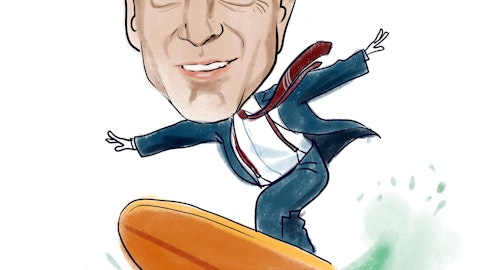In 2002 John Horseman founded Horseman Capital Management, a London-based fund that over the years has positioned itself as a contrarian due to its big bearish positions . The bet against the market helped Horseman a lot in 2008, when the fund ended the year as one of the best-performing hedge funds, but since 2009, its returns have been mixed. In 2007, Horseman scored gains over 35%, when the market returned around 7%, and in the following year, the fund’s earnings remained at around the same level, when the broader market ended deep in the negative territory.
However, in 2009, as the market started to rebound, Horseman posted losses of around 23% as it continued to bet against the market. This performance was surprising, as the fund had never registered an annual loss before and registered annualized gains of 25% in the previous four years. It led to the resignation of the fund’s founder John Horseman, who said that he was stepping down “because of how I perceive the investment environment.” Since founding the fund and until his resignation, Horseman managed to post annualized gains of 16%. Horseman was replaced by Russell Clark, who was appointed as portfolio manager at the beginning of 2009. In the meantime, Horseman’s assets under management slid from $6 billion in March 2009 to $1.1 billion at the end of September 2017.
Despite the key management change, Horseman Capital continued with its contrarian approach. The fund, labeled as the “world’s most bearish fund” at one point by Zero Hedge financial blog, had a strong performance in 2015 and a good start of 2016, posting gains of 8.02% in January, when the S&P 500 lost over 5%. However, by the end of the year Horseman Capital became one of the worst-performing hedge funds of 2016, as its bet against the market didn’t play out well after Donald Trump’s election victory. In 2016, Horseman’s Global strategy fund lost 24%, mainly due to declines registered in the last two months of the year, when the broader market rallied.

Lightspring/Shutterstock.com
For the first six months of 2017, Horseman capital posted a loss of 8.31%, as it continues to be shorting developed markets and is long emerging markets. Clark is also bearish on US shale producers, because he believes that they are not as competitive as other oil drillers and will “find it hard to make money”, as he said in a letter to investors. At the same time, Clark remains bullish on commodities.
Horseman Capital’s latest 13F reveals an equity portfolio that seems to be aligned with Clark’s position on the stock markets. The fund has an equity portfolio worth $449.90 million as of the end of September and the portfolio is highly diversified both geographically and across sectors.
On the next page, we are going to break down Horseman’s 13F portfolio and take a closer look at some of its largest holdings and new positions initiated during the third quarter.





